Getting kray-zy for opioid alternatives
A batch of “prepared” Kratom.
The US Government declared the opioid crisis a public health emergency towards the end of 2017. However, some Chico State students believe they have found a solution to the epidemic.
Kratom is a tropical evergreen tree that grows in Southeast Asia and is starting to become popular in the U.S. for its medicinal, spiritual and recreational purposes. There are over 27 active ingredients, two of which imitate opioid effects, however, according to Dr. Jack Henningfield in his study of kratom released in 2016, kratom itself is not an opioid.
Chico State Philosophy and Political science student Bill Rein support its use for both medicinal and recreational purposes.
“I’ve introduced a lot of people to it,” he said. “One reason I really like it is because its effects can be thought of as similar to weed, and I don’t smoke weed… so if you’re going somewhere and everyone’s smoking, one way to resist temptation is just to make kratom.”
Rein explained how kratom can be ingested multiple ways.
“More recently I’ve been seeing it in capsule form, as it’s gotten more popular and there’s a market for it. But initially, we used to just order bags of it online from the countries themselves super cheap. You get it in powder form and then mix it into a pot of water to make a tea. It’s like a wheatgrass shot times 100, it tastes horrible.”
Rein talked about the reasons why he believes efforts to ban kratom at the federal level were denied.
“I think last summer Scott Gottlieb, the commissioner of the FDA, went out and he was like, ‘this drug has been involved with 36 overdose deaths.’ Now they are talking about adding it to the drug schedule (this year). And the thing with the 36 deaths, they put that number out there and didn’t link to anything, in press memos they don’t give any citations, but they dropped that, and when people started actually researching it. There’s a lot of other variables like the other drugs in your system. Also 36 deaths, what kind of time period is that? The last year, or five years? 36 deaths in all of recorded history? That number is really mysterious, it’s just kinda out there.”
Bill believes that kratom should be treated like any other substance, and that everyone should know what their body can handle. While he understands that kratom could have adverse side-effects, Bill still believes kratom is safer than traditional prescribed medicine.
“People are using it to deal with withdrawals from opioids. When you’re comparing kratom to opioids, obviously the (effects of kratom over time) are gonna be much less. And then short-term effects, everyone has thrown up on kratom, especially if you’re doing it on an empty stomach.”
Rein is a part of a club where he can voice his opinions on hot-button issues.
“It’s called Young Americans for Liberty. Most of what we have been focusing on last semester is just a drug decriminalization message because that’s what people are interested in,” he explained.
The National club formed on Chico State’s campus last semester and has about 15 regular members according to Bill. They have other plans to raise awareness and make people care about political issues.
Rein is against drug prohibition, for the reason that he doesn’t believe the government has any business deciding what people decide to put in their bodies.
“Yeah, I (think all drugs should be decriminalized). I don’t know of any positive argument for prohibition that is convincing to me.”
“(The US) has this big (opioid) problem, an epidemic. It was literally called a public health emergency in October. It’s been cited as the biggest drug problem we’ve had. We’ve had problems with opiate drugs since the late Nineteenth Century. But doctors have been prescribing these opioids, but why? And that’s why the opioid problem is so bad now is that there is this huge drug-manufacturing industry that didn’t exist 100 years ago, but part of the reason why these drugs were invented is that there is a market for them. And there’s a big market for opioid analgesics and pain-relief pills because people are (in pain).”
Rein has a theory that the opioid epidemic was encouraged when the US banned heroin as a prescription substance in the 1920s.
“So my pet theory is what if we didn’t just ban heroin? Where would we be now? Would we have this problem which is worse than heroin was in the ’20s? I think usually when we get involved with criminalizing drugs, it bites us in the ass further down the road.”
Mitchell Kret can be reached at [email protected] or @theorion_arts on Twitter.



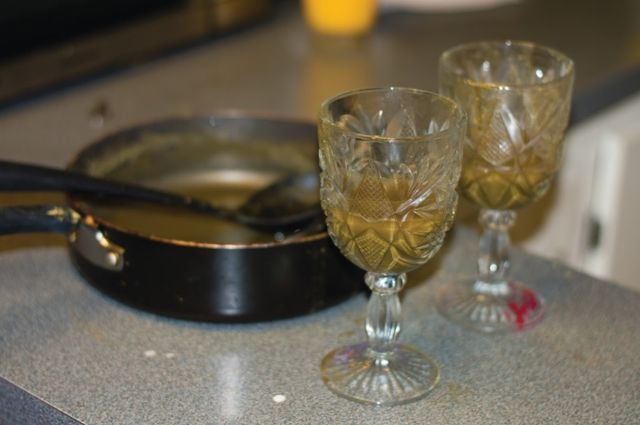

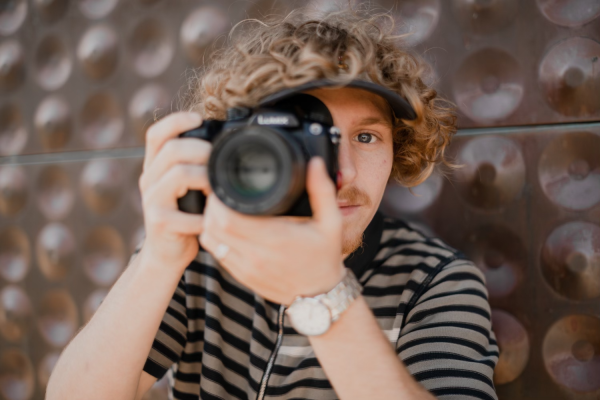
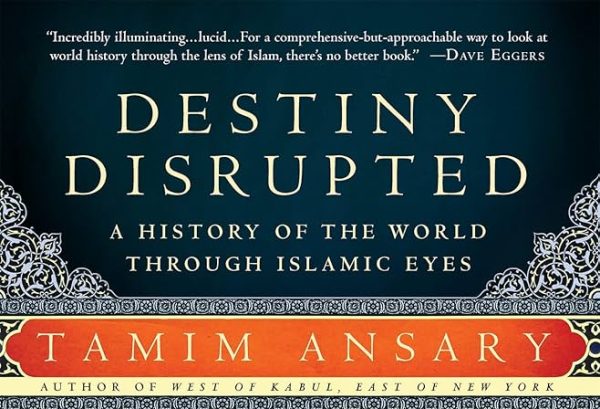
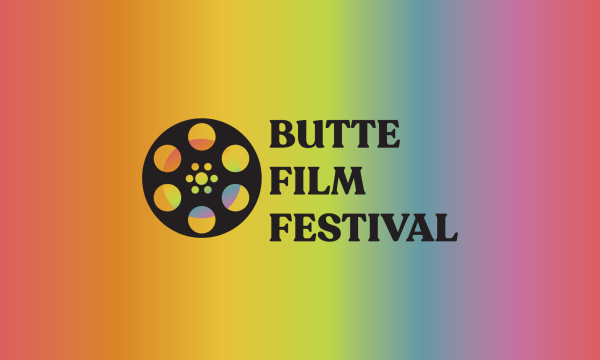
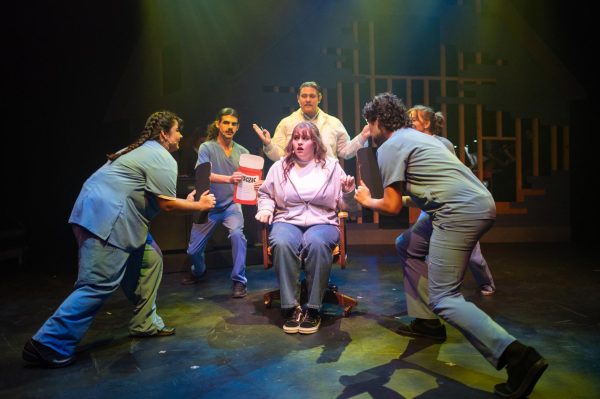
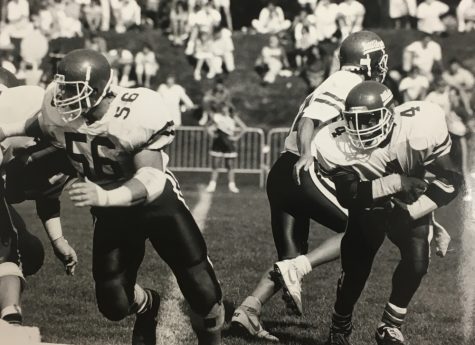
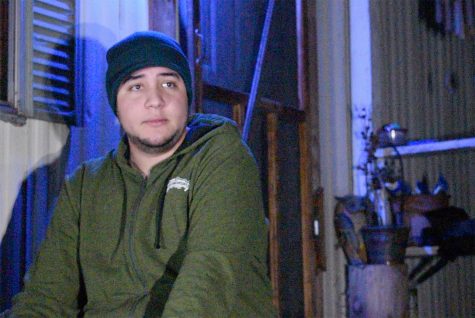

Waismann Method // Feb 8, 2018 at 12:46 pm
There has been so much controversial debate regarding Kratom. As a medical detox center, we are looking at Kratom from a medical and scientific perspective. We have firsthand experience detoxing patients from Kratom so we have seen how similar the withdrawal syndrome from Kratom is in comparison to painkillers. The withdrawal symptoms can be just as harsh and scientifically speaking, the primary chemical in Kratom attaches to the opioid receptors. This results in similar side effects and potential for abuse, dependence and addiction. If you would like to learn more, check out our article: https://www.opiates.com/kratom-opiate-withdrawal-treatment-or-another-drug/
RigidPrinciples // Feb 7, 2018 at 5:32 am
After having time to think about this, I hope everyone is looking at this issue broadly enough. From a principle perspective, this issue is about so much more than kratom. The question folks really need to be asking is, “In the United States, where we uniquely have inalienable, individual, inherent rights, how does any level of government believe they have the privilege to legislate what we can, or can’t, put in, or take out, of our own bodies which are our own sovereign nations?” While it is a little flattering they want to protect us, the bottom line is it is outside any government’s jurisdiction. Before We can thoroughly educate the FDA/DEA/Trump, We ourselves must understand the roots of this tyranny. The government has always known it doesn’t have the privilege to make plants illegal. They tried with the 18th amendment, but they quickly learned the 2nd amendment trumped the 18th amendment. After passing the 21st amendment in 1933, less than a year later, in knowing they did not have the privilege to make machine guns illegal, they simply perverted the 16th amendment, and passed legislation stating in order to possess a machine gun, you first needed a tax stamp from Congress, which they printed few of. This Jedi mind trickery was only possible because the People were docile after the 21st amendment. This single act set the stage for the tyranny We see today from the FDA. As in 1937, the government passed the Marihuana Tax Act, stating in order to possess marijuana, you first needed a tax stamp from Congress, where they simply didn’t print any stamps. This is the basis for how our government originally overstepped its bounds. We have to fight the tyranny at the root. We the People would never stand for that outright tyranny in 2017. Could you imagine? Sure you can exercise your 5th amendment, but first you need to possess a 5th amendment tax stamp, and sorry we aren’t printing any. Technically, via precedent, our government feels they have that privilege. Unfortunately, since the original shenanigans were in the 1930s, everyone just feels it’s always been like this, and that the government can do whatever they would like. Our government needs taught otherwise, and We the People must accept our responsibilities. Fear is the only motivator for a tyrannical government. If they’re not looking over their shoulders, then we’re not doing it right. Scared, not smug, they must be, in order for We the People to win this war of our generation. This war is more crucial than Vietnam, Iraq, Afghanistan, Syria, or North Korea. This war is on our own soil. Right in front of our eyes. In war, it is kosher for both sides to fight. What war has ever been won by a People who sit back and cross their fingers the attackers will just not be evil? Where only one side takes up arms against the other? We could try putting flowers down the barrels that will certainly be pointed at all of us when the DEA waits for the most opportune time to schedule this (my guess is DEA will schedule sometime between 2/15-2/28), and then turns millions of Americans into felons overnight. They are banking on us remaining docile. If they were truly scared, they’d back off. But with Trump being buddy buddy now with Duterte, it’s obvious he is supportive of death squads if We the People possess plants that compete with GlaxoSmithKline and the others. Life is short. There is no greater noble cause than fighting tyranny…fighting for our freedoms…being selfless in this war, for a better future for our children.
Geri Roberts // Feb 6, 2018 at 12:50 pm
I have hope for the future when I see a young man like thismaking up hyis own mind and not just believing whatever garbage the government tells him.